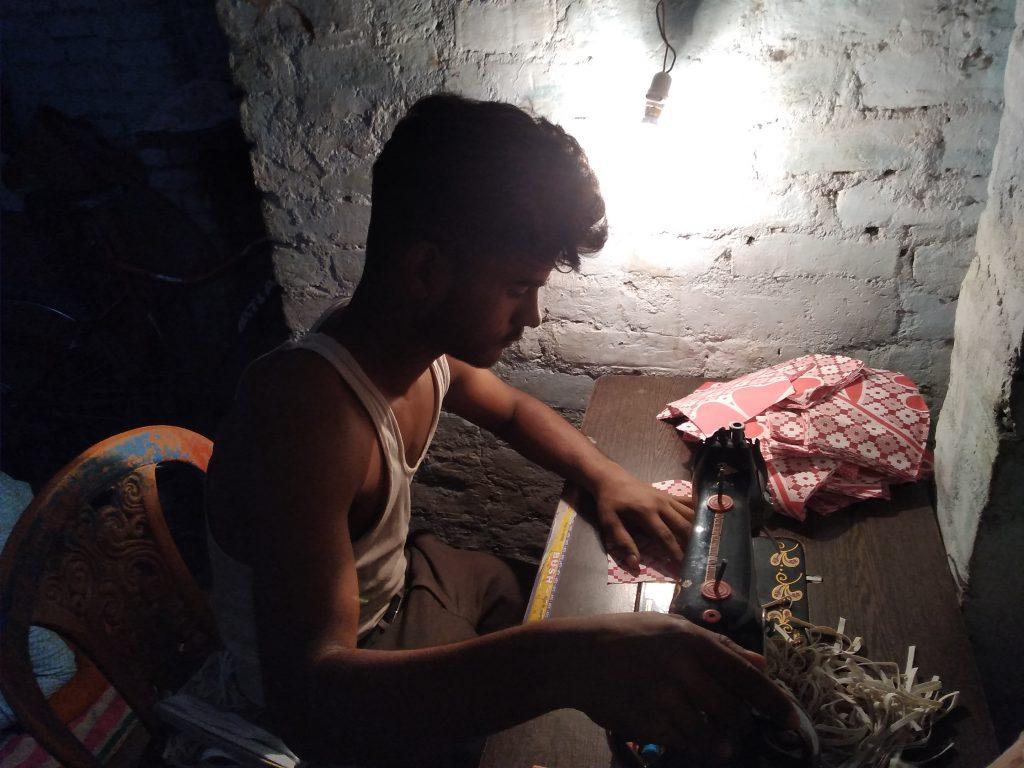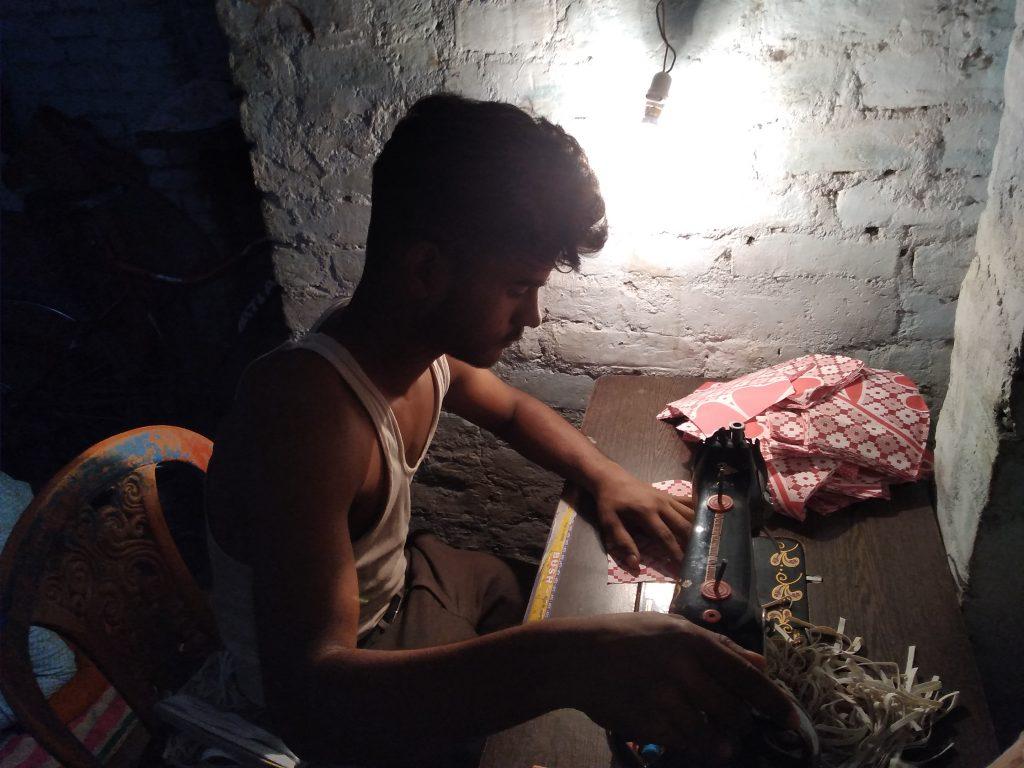
Ten days ago, a friend rang to ask me whether it would be reasonable to start a cottage-industry sewing cotton facemasks. Thomas lives in Daliganj, Lucknow, a densely populated urban community where families live in single brick rooms. He thought facemasks could both protect people from coronavirus and generate income for families struggling in India’s giant lockdown. I said I’d check the evidence and get back to him. I searched online and found we are all in a black hole for evidence on virus’ and facemask. Cotton facemasks, like papier-mache motorcycle helmets, look right but may not actually protect. To wear or not to wear a facemask is the question of the week.
The Covid-19 epidemic is like a plough, churning up new questions that we really should have known the answers to years ago. It seems so obvious now, that any modelling and planning for a global pandemic should have recognised the huge need for surgical masks, and thus developed evidence around home-made cotton face masks. This month there are new and critical questions for public health globally: do home-sewn two-layer cotton facemasks protect wearers from a viral respiratory infection? Do they reduce transmission of infected respiratory droplets? Is there a difference in efficacy between two layers of cotton, or three? What about increasing the effectiveness of a cotton mask with a non-woven layer of polypropylene? Do they reduce face touching? Can they be disinfected by sunlight? Answering these questions would be relatively easy with time and good research design, but I, and thousands of other public health physicians the world over did not think of asking them. Today this is as desperate a question for a daily wage labourer in a Uttar Pradesh slum as for the president of USA.
There is just one peer-reviewed randomised controlled clinical trial which evaluates the effectiveness of different types of facemasks in protecting workers from an influenza like respiratory viral infection. It was conducted among 1607 hospital workers in Vietnam five years ago. It shows that cloth masks let through double the volume of virus particles as surgical masks and risk of infection was nearly four times higher for the cloth mask group vs surgical mask group. The authors of the study above have added a post-script, which I fully endorse, in light of huge shortages of personal protective equipment for health workers currently:
“If health workers choose to work using cloth masks, we suggest that they have at least two and cycle them, so that each one can be washed and dried after daily use. [ ]. These are pragmatic, rather than evidence-based suggestions, given the situation. Finally, for COVID-19, wearing a mask is not enough to protect healthcare workers – use of gloves and goggles are also required as a minimum.[1]
Behind this current mask quandary, I wonder aloud, what else should we know by now? What are the upcoming urgent questions that we need to ask now, to generate life-saving evidence in possible crises in months or years ahead? How do we ensure we ask the right questions in global public health and in science?
Learning fast and doing things differently is a huge opportunity offered through the Covid pandemic. Responding to unravelling complex systems requires thinking that is both careful and carefree. Typically, global health research is guided by relationships and conversations. Conversations with researchers at conferences (and Zoom meetings) generates one set of questions. Conversations with friends living in informal urban communities can generate another set of questions. Both are important to the world, but while global health research policy and questions continue to be set exclusively in boardrooms in Nairobi or New York, we may miss out on crucial questions that people who live in small rooms in a Lucknow slum might ask.
I emailed Thomas saying “The evidence for home-made cotton facemasks as protective is not great, but the point is moot. We know most people can’t access a surgical mask and cotton-masks possibly reduce transmission.” Pragmatically, Thomas and a band of enterprising people with sewing machines are sewing volumes of cotton masks. We then discussed whether there could be an upcoming shortage of motorcycle helmets too. They could provide excellent protective visors against respiratory droplets. His next question, how about a cottage industry making papier-mache motorcycle helmets with hard plastic visors to protect against airborne virus particles?
To respond to the current Covid crisis we must recognise there are known unknowns and unknown unknowns lurking out there. To develop questions, find answers, implement them and evaluate their success we need ways to quickly integrate the questions of practitioners, policy makers and especially people whose lived reality it is, as well as academics. The questions continue and we need to keep asking, what else should we know by now?

Wonderfully written Kaaren! can’t agree more. I think, for the first time we have learnt not only to recognise the unknown, but, also respect it. I am sure this event will also be a pivot to research thinking in public health, at least I hope it to be so!